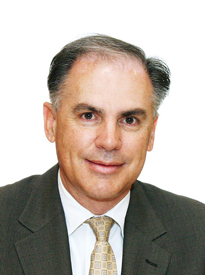Ontario’s newly re-elected Liberal government has renewed its commitment to further study the merits of more tailored regulation of financial planners by setting up an expert committee to review the issue when it reintroduced its budget last month.
This is an important issue as the debate intensifies between various financial services sector groups regarding the future of financial advice — how to regulate it and deliver it to consumers. Some groups wish the government were to focus on financial planning while others wish for all financial advisors to be targeted. I have previously advocated a focus on financial planning because we must get the financial planning delivery model to client and the regulation of it right, as it will be the prevalent future business model.
The purpose of this column is not to re-advocate this point but to advise financial advisors to have the holistic advice conversation with their clients and make a plan to make the transition in their practices to financial planning in order to protect their long-term viability.
This is the environment that favours a future of financial planning instead of basic financial advice:
- Technology changes most industries as they mature, and the financial services business is no exception. In speaking with many banking advisors at local branches, clients now prefer to use self-directed investing systems and bypass the personal financial advisors. Furthermore, the introduction of “robo-advisors” — a set of complex computer algorithms that manage clients’ portfolios —are gaining market share in the U.S. and several are in the works for the Canadian market. Of course, young professionals who prefer to stick with the Internet to manage their money favour robo-advisors and self-directed investing systems. Then, there are also new consumer-friendly insurance portals for people either looking for insurance or for existing policyholders who wish to manage their policies. The main point is that technology will replace basic human services in the business.
- Regulatory pressures around financial consumer value and pricing will push up the value proposition required to serve your clients. For example, embedded fees in mutual funds will most likely disappear as the years of receiving trailer fees for annual service of the account may not be cost-effective for the client — especially for basic advice and transactions (see point above).
- The federal government’s enhanced focus on financial literacy in Canada will eventually lead to a greater expectation by Canadian financial consumers of high-quality and holistic advice from their financial advisors.
- Finally, in working with a large number of financial services firms in my role, I see first-hand a strong preference for their advisors to move to a holistic financial planning approach through incentive programs or hiring practices.
So, what can you do to protect yourself from these trends? The first thing you should do is obtain a financial planning designation, such as the certified financial planner (a.k.a. CFP). Second, adopt the six-step financial planning process. Third, and most important, have the holistic advice conversation with your clients so that they can see the value that you bring and are willing to pay for it.
For example, augment your existing services, where applicable, with services such as financial checkup, life planning, and financial coaching. If you can tailor your suite of services to add value and assist your clients in achieving their financial security, life, and retirement goals, then you will survive the elimination of the basic financial advisor.
It is inevitable that occupations are eliminated or marginalized in evolving industries, as it is basic economics. Do not be fooled by organizations that wish to protect dying occupations and keep you as a basic financial advisor in order to harvest the remaining profits or by advocacy groups that want to keep your membership. It is time that you protect your future and make the transition to financial planning.
